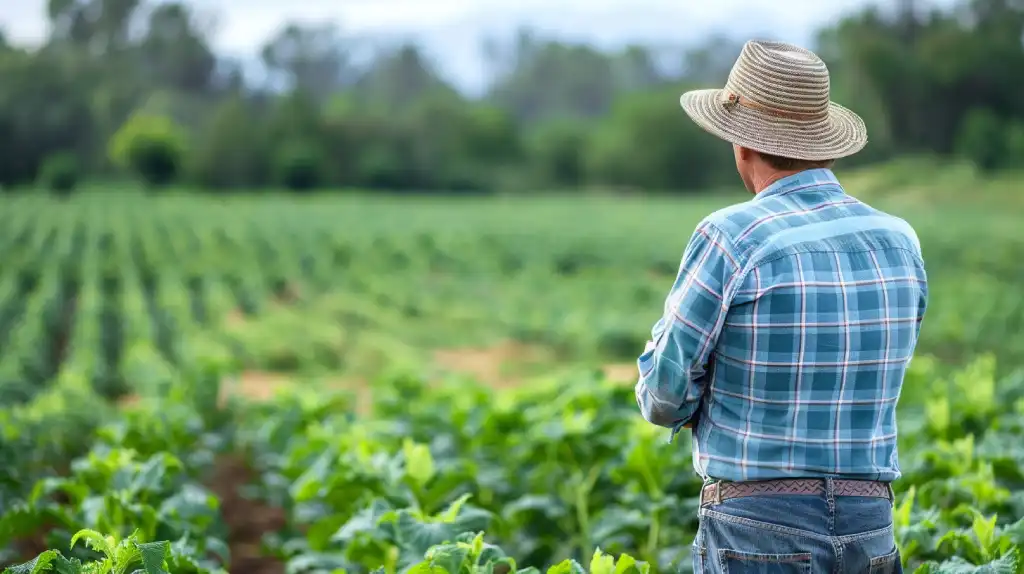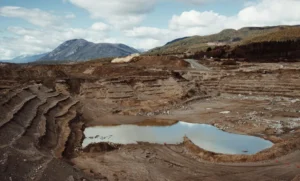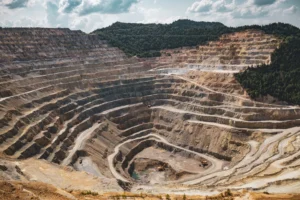Soil conservation is essential for agriculture as it safeguards soil fertility and prevents soil erosion. It is crucial for consistent crop yields and long-term food security.
Soil conservation is crucial for maintaining the productivity and sustainability of agricultural lands.
Soil erosion can lead to the loss of up to 30% of a field’s productive capacity over time, reducing crop yields.
Practices that prevent soil erosion can save farmers thousands of dollars per acre in lost productivity and soil restoration costs.
Proper soil management can increase water preservation by up to 25%, which is vital in areas facing water shortage.
Why Soil Conservation Is Important to Human Agriculture?
Soil conservation is important for human agriculture because it preserves soil fertility and prevents erosion.
Healthy soil secures long-term food production by maintaining the health and productivity of the land.
It helps protect water quality and biodiversity, contributing to overall environmental sustainability.
Soil conservation is important for sustainable food production and environmental health. Healthy soil is the foundation for producing plentiful and nutritious food, securing food security for growing populations.
Soil conservation is essential for sustainable agriculture. It protects soil health, improves crop yields, and supports precious biodiversity. By adopting soil conservation practices, farmers can contribute to a more sustainable and food-secure future.
Soil Conservation and Its Relevance to Agriculture

Soil conservation involves practices that protect soil from erosion and other types of degradation. It is important for agriculture because it helps maintain soil health, which is essential for growing crops.
Key Benefits of Soil Conservation
- Prevention of Soil Erosion: Soil conservation methods, such as planting cover crops, help prevent the loss of soil due to wind and water erosion.
- Maintenance of Soil Fertility: By protecting the soil structure and nutrient levels, these practices help maintain soil fertility, which is necessary for healthy crop growth.
- Water Retention and Management: Conservation practices improve the soil’s ability to retain water, making it available for crops during dry periods.
- Support for Biodiversity: Healthy soils support a wide range of organisms, which contribute to soil health and crop productivity.
- Preserving Soil Health and Productivity: Conservation methods protect soil organic matter, which is crucial for maintaining soil health and crop yields.
- Reducing the Impact of Climate Change on Crops: By improving soil health, conservation practices can help crops withstand extreme weather conditions linked to climate change.
- Enhancing Food Security by Improving Crop Yields: Healthy soils are more productive, leading to higher crop yields and contributing to food security.
How Soil Conservation Practices Support Sustainable Agriculture
- Crop Rotation and Cover Cropping: These practices improve soil health by increasing organic matter and reducing pests and diseases.
- Terracing and Contour Plowing: These methods reduce soil erosion on slopes by slowing down water runoff.
- Agroforestry and Organic Farming Methods: Integrating trees into farming and using organic methods protect soil health and promote biodiversity.
- No-Till Farming and Mulching: These techniques reduce soil disturbance and maintain soil cover, which protects against erosion.
- Use of Cover Crops and Buffer Strips: Planting cover crops and creating buffer strips along waterways help prevent soil erosion and protect water quality.
- Integrated Pest Management: This approach reduces the need for chemical pesticides, which can harm soil health and biodiversity.
FAQ's
1. which of the following best explains why soil conservation is important to human agriculture?
Soil conservation is important for maintaining soil health, preventing erosion, and ensuring sustained crop production.
2. Why is soil conservation important to human agriculture?
Soil conservation protects topsoil and and maintains nutrients for sustained crop growth and food production.
3. Why is soil so important to agriculture?
Soil is the core of agriculture, supplying essential nutrients, retaining water, and supporting plants for optimal growth.




